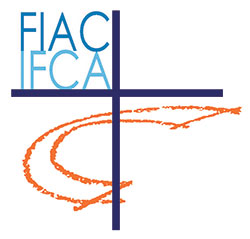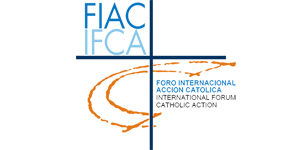Final document
IV African continental meeting
BREAD, LIFE, PEACE, FREEDOM. Catholic Action Lay People for a more humane world •Rwanda – Kigali, 10-14 March 2010
The IV African Continental Meeting brought together countries from East Africa (AMECEA: Kenya, Uganda, Sudan, Tanzania), from Central Africa (ACEAC: Burundi, Rwanda, Rep Congo), from the Region of Central Africa (ACERAC: Central Africana Republic and Congo Brazzaville) and from some European Union countries (Italy, Spain and Romania). It was held at the Saint-François d’Assise Centre in Kicukiro (Kigali in Rwanda) from the 10th to the 14th March 2010. The meeting was promoted by the Catholic Action International Forum (IFCA) in collaboration with the Rwanda Episcopal Commission for Lay Apostolate (C.E.A.L). The theme for the meeting was: «Catholic Action Movements, at the service of Reconciliation, Justice and Peace. You are the salt of the earth …, you are the light of the world …, » Mt 5,13-14. This was in line with the central theme for all the Continents: «Bread, life, peace, freedom».Without delay, IFCA wanted to take up the message which the Synod addressed … “to all the Church, which is God’s Family and particularly to the Church in Africa; to our brother Bishops whom we are representing; to the priests, the deacons, to members of Religious Orders, to all the lay faithful and to all those, who touched by God’s grace, open their hearts to listen to our words” (IV part 22-28). “With deep affection, the synod wishes to address African lay faithful …”.
This meeting was meant to be an occasion for formation for the leaders and priest-assistants of Catholic Action Movements and for representatives of other lay movements. There were about 100 participants including: Bishops, priests, members of religious orders and lay people coming from 12 countries.
The themes tackled during the meeting were:
1. a guided study of the message of the II African Synod
2. prospects after the Synod
3. The Church in Africa, in the heart of the universal Church – opportunities, gifts and challenges: formation as a priority
4. Lay people’s participation and corresponsibility in the Church
5. Guiding principles and conditions for a prosperous, peaceful and reconciled Africa
6. Catholic Action Movements’ identity and IFCA’s prospects
All this was enriched with a number of testimonies, including those of the two lay people who were guests at the Synod.
The participants examined closely the challenges related to evangelization and human dignity: poverty, social injustices, bad governance, persistent insecurity, the wrong slant taken by democracy in quite a number of countries, corruption, the deterioration of values, the urgency for reconciliation, the necessity for a culture of peace, the need for an overall formation above all formation in the Social Teaching of the Church …
The participants deepened the awareness of their vocation as lay people, which they assumed through their Baptism, and realized even more clearly their co-responsibility in the mission and life of the Church and that they are the witnesses of Christ in the world.
The participants committed themselves to:
– Defend the sacred gift of life – by safeguarding and promoting the dignity of the human person and its undeniable rights, by being charitable towards the most needy, by working on the formation of consciences, by keeping an eye on justice, peace and reconciliation and on the application of the principle of subsidiarity, of the common good and of solidarity in the different social realities..
– Fight against the attraction, which sects and new religious movements are presenting in Africa, by strengthening the ecclesial basic community as a centre of learning and of practicing fraternal charity.
– Work towards the translating and the spreading of the Bible in dialects so that the Word of God may be within everybody’s reach.
– Use the modern means of communication as effective tools to transmit the Christian faith.
– Be more present in dramatic situations experienced by their people and propose in time action to be taken.
– Be available to the Episcopal Conference to work on the translation of the Compendium of the Social Teaching of the Church and of the Catechism of the Church into the different local languages so that these may help in the formation of lay people and help them deepen their faith..
– Study in depth the four characteristic notes which define Catholic Action Movements and which are found in Apostolicam Actuositatem (n. 20) namely: the fact that they share in the mission of the Church, their lay character, their organic nature and their collaboration with the hierarchy.
Considering the situation, with such a variety of Associations and Movements, and respecting all the different forms of lay associations, the participants confirmed the validity of Catholic Action Movements and recognized them as a gift from the Holy Spirit to the Church. So they committed themselves, individually and collectively, to find ways and means as to how to reach their formation objective.
Recommendations:
The participants addressed some recommendations to the Bishops, their pastors:
– To assign priest Assistants who can devote their time, their energy and their commitment to CAM;
– Identify a national day to be dedicated to the Laity so as to create an awareness about lay people’s mission in the Church and in society. This could also be an occasion for collecting funds which could go towards the formation of all the laity particularly of those who adhere to CAM;
– Promote twinnings and exchanges of experiences with Catholic Action Movements in sister Churches. This will also be solidarity in practice;
TO IFCA:
To promote seminars of formation at international, continental, regional, national and diocesan level whenever possible.
The participants thanked the Bishops who showed their support towards this initiative or who presided over the Eucharistic Celebrations or Sessions. They also thanked IFCA for its contribution towards the success of the seminar.
Lastly, they showed their sincere thanks and joy to the Holy Father for his message wherein he encouraged them «to reaffirm the importance of spiritual values in promoting authentic solidarity and respect towards human dignity».
To conclude, they thanked the Apostolic Nuncio in Rwanda and the representative of the Government of Rwanda.
The Participants
- wps_subtitle:
- pl_view_post:
- 1343








